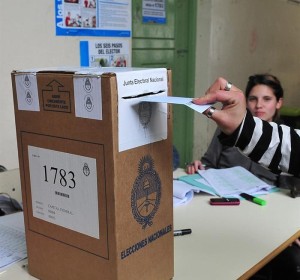 Last October 25, three elections took place in Latin America. Argentina, Guatemala, and Haiti held electoral events, but results were known in only one of them.
Last October 25, three elections took place in Latin America. Argentina, Guatemala, and Haiti held electoral events, but results were known in only one of them.
While there will be a runoff in Argentina, and in Haiti authorities announced that definite results will be disclosed starting November the 4th, Guatemala was the only country that presented the winner of the election. Let’s take a closer look at each election:
1.- Argentina
The South American country had a high voter turnout—79% of the registry—, but the good news were followed by a six-hour delay in the presentation of the first official result bulletin.
The election results were very close—there was a 2.5% difference between the first and second candidates—, which caused the National Electoral Chamber to delay the broadcast of the final vote count. This sparked complaints and suspicion all around the country, and also showed how precarious the Argentine manual voting model is.
The country will have its first runoff ever next November 22. The last one did not take place because one of the candidates abandoned the race. However, the slow delivery of results entailed an institutional and political risk that could have been costly, as electoral uncertaintly is one of the most dangerous experiences for democracy. This was made evident by the violent events that took place in Tucumán, Argentina, after the elections of last August.
If the margin is close during the runoff, Argentina will face a challenge that implies the need to start working in the renewal of its electoral system.
2.- Guatemala
Guatemala elected its new president: Jimmy Morales. Although something similar to what Argentina experienced happened here, when a “dead heat” made it impossible to announce results for days, the ample difference between both candidates and a 55% voter turnout made the work of the High Electoral Court (TSE) much easier.
The fact that Guatemala was safe by sheer luck speaks volumes about the poor condition of its electoral system. Democracy is very young in this country, so it is vital to aim toward the development of the electoral platform in order to avoid conflict, which this time was averted, perhaps by sheer luck too.
3.- Haiti
Out of the three countries that held presidential elections, Haiti had the most dramatic results. At the end of the election, the president of the Provisional Electoral Commission of Haiti (CEP), Pierre Louis Opont, announced that it would take ten days (starting November 4) to offer preliminary tally results.
The nation is facing strong setbacks due to its technologic and logistic constraints, aside from its weak institutionality. Although it has received financial and technical aid to run this election, its problems with the voter registry and the tallying phase reveal an urgent need to reform its electoral system.
The international community has the mission of supporting Haitians, but a stronger effort is needed in order to offer the country a voting method that makes it possible to rescue electoral certainty. On the first round, only 18% of those registered (that is, only 990,000 out of a full voting population of 5.5 million citizens) went to the polls. No better turnout is expected from the second round, either.
